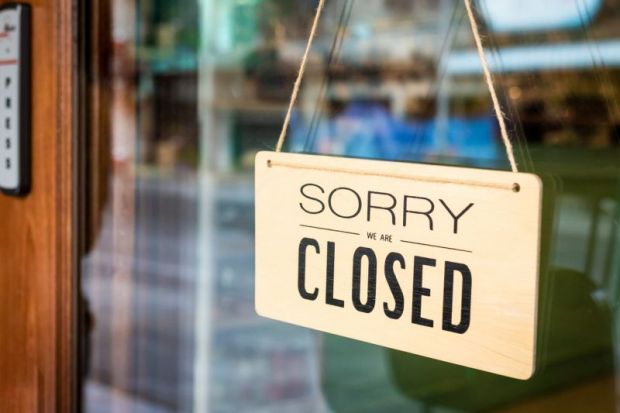The University of North Carolina at Chapel Hill, one of the first major US institutions to open its campus for the fall, has become the first to abandon in-person teaching, after a surge in coronavirus infections in its first week of classes.
In that first week, the 29,000-student UNC said it went from 10 infections among its students to 130 cases, with the rate of positive tests jumping from 2.8 per cent to 13.6 per cent.
“As much as we believe we have worked diligently to help create a healthy and safe campus living and learning environment,” UNC’s chancellor, Kevin Guskiewicz, and provost, Robert Blouin, wrote to the campus community, “we believe the current data present an untenable situation.”
But in a reflection of the anxieties and tensions throughout the country, some UNC students blasted their administration, calling the outbreaks fully predictable given the expected behaviour of their classmates.
“We’re angry – and we’re scared,” the editorial board of the student newspaper, The Daily Tar Heel, wrote shortly after UNC’s decision to end in-person classes. “We’re tired of the gaslighting, tired of the secrecy, tired of being treated like cash cows by a university with such blatant disregard for our lives.”
UNC is among several early-opening US universities where large numbers of students returning to campus were shown in videos or reported to be gathering at large parties.
Such events should have “come as no surprise”, the student editorial said, blaming UNC administrators for failing to heed the recommendation of local health officials that UNC restrict on-campus housing and offer online-only instruction for the first five weeks of the semester.
Versions of the same debate are playing out at campuses across the US, one of the least successful developed nations in fighting Covid, with more than 5 million confirmed infections and 170,000 deaths.
Other US campuses where students have been shown in large gatherings in recent days include Oklahoma State University, the University of North Georgia, Villanova University and the University of Alabama.
At Oklahoma State, a sorority with about 95 student members was placed in quarantine after 23 of them tested positive for the virus.
Other US campuses with outbreaks ahead of the fall semester include the University of Southern California, with 45 coronavirus cases tied to three fraternities, and the University of Washington, with 100 student infections involving fraternities.
At both Oklahoma State and Alabama, football players still hoping to have an autumn season have been among the more prominent voices chastising their classmates for not taking the threat seriously enough.
They include Tre Sterling of Oklahoma State, who posted a video on Twitter showing crowds of his fellow students outside bars with a note saying he would not feel safe attending classes with them.
The new academic term is beginning in the US with most colleges inviting their students back to campus, even though less than a quarter of them planned to teach classes mostly or entirely in person.
UNC’s experience suggests the folly of such calculations, The Daily Tar Heel said in its editorial. “The administration continues to prove they have no shame, and the bar for basic decency keeps getting lower,” it said.
UNC leaders said that they would cancel in-person undergraduate classes from Wednesday, and would allow students refunds of their residence hall contracts. The university had recorded more than 300 infections involving students and staff since February.





